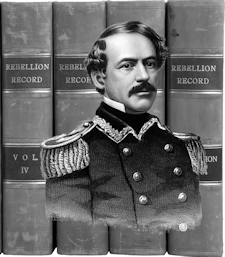January 18.—John Tyler died at Richmond, Va., in his seventy-second year, having been born in 1790. He was a native of Charles City County, Va. On reaching his majority, he was elected to the Legislature of that State, and five years subsequently to the House of Representatives. In 1836, he was chosen Governor; but served only a year and a half, having been sent to the United States Senate to fill a vacancy. This spring-tide of promotion continued until 18-10, when he received the nomination for Vice-President from the Whig party. The death of General Harrison opened the White House to Mr. Tyler, soon after which, by turning his back upon the party which had placed him in power, he added a new term to the political vocabulary.
The great events of his administration were the vetoing of the United States Bank Bill, and the making of preparations for admitting Texas—a measure which was brought about shortly after his retirement, in 1845. Since that date Mr. Tyler lived on his plantation, near the village of Hampton, Va. The commotions of last winter brought him out of obscurity, when he acted the part of a peace-maker for some time, previous to his allying himself with the rebel faction.—N. Y. Commercial, January 21.
—Captain- Phelps, with the gunboat Conestoga, made a reconnoissance, from Cairo, Ill., up the Tennessee River to-day, and shelled a point just below Fort Henry, where a masked battery was supposed to be, but did not succeed in drawing its fire.
—Captains Murdock and Webster returned to Cairo last night, from an expedition to Bloomfield, Mo. It was a complete success. They captured forty of the rebels, among them one lieutenant-colonel, two surgeons, one adjutant and three captains.



